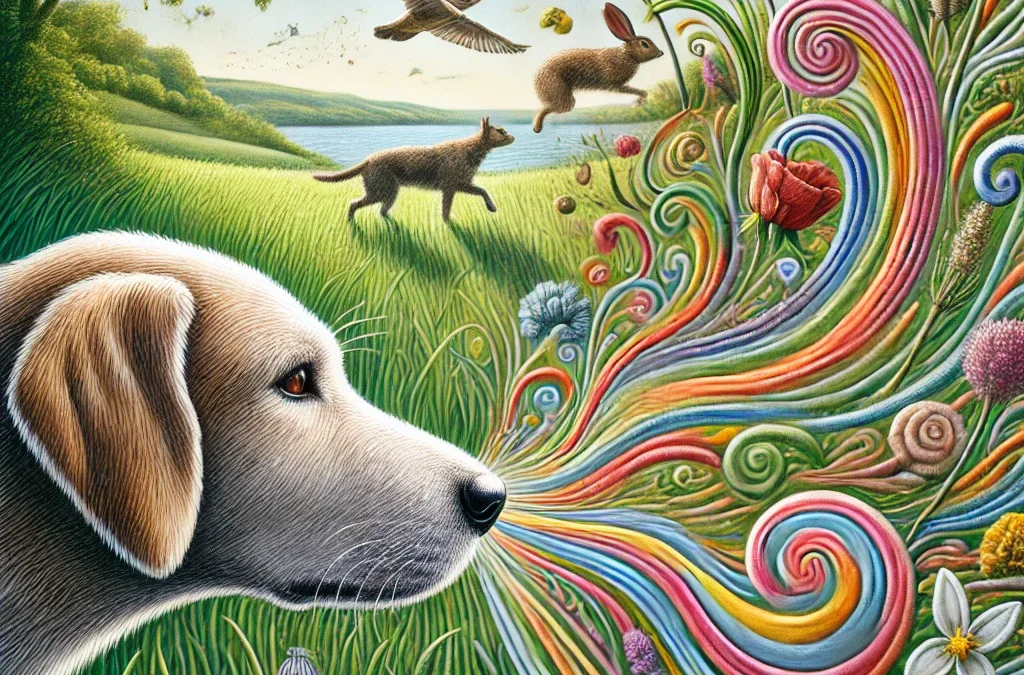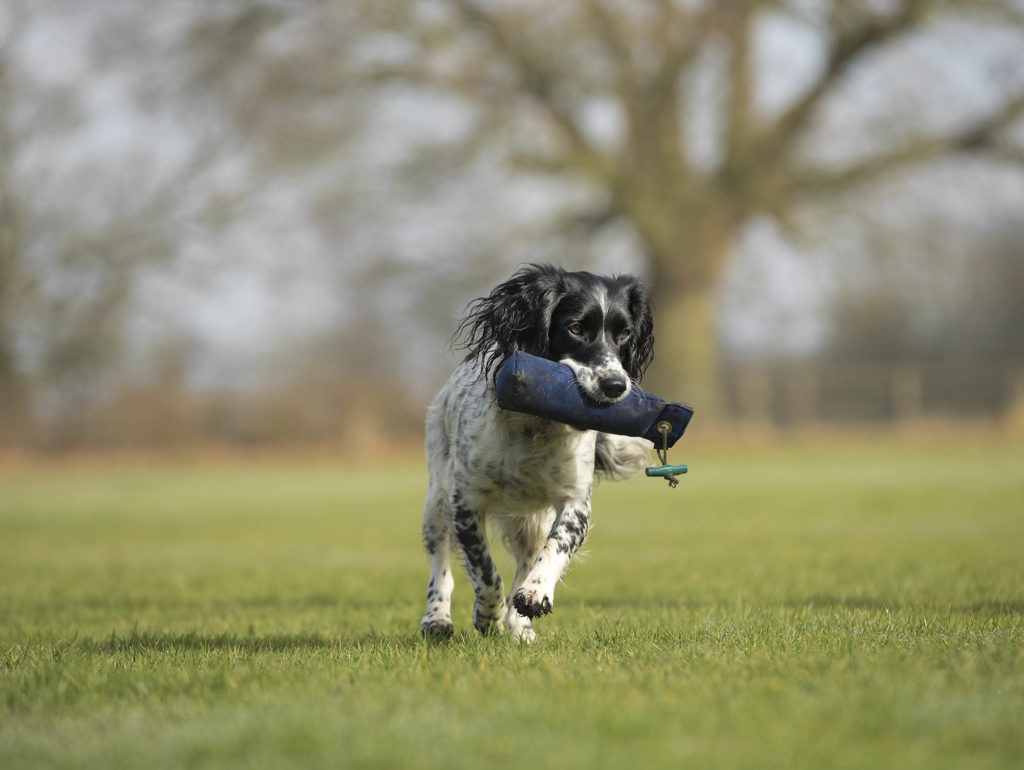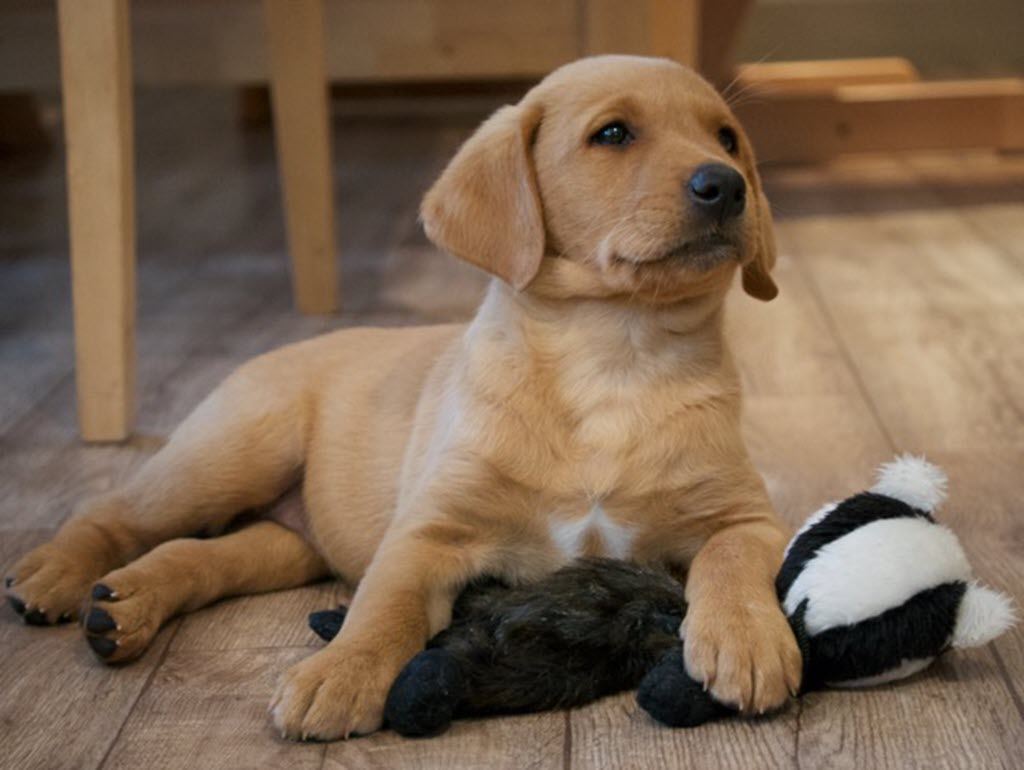Understanding Gundog Instincts During Walks
For a gundog, a walk isn’t just exercise—it’s an exciting opportunity to engage with their instincts. Understanding gundog instincts during walks can help you manage their energy and focus, transforming chaotic outings into enjoyable adventures.
Gundogs, such as spaniels, retrievers, and HPRs, have specific roles rooted in centuries of breeding. By recognizing gundog instincts during walks, you can better anticipate their behaviors and channel their energy productively.
What Does the World Look Like to Your Gundog?
To us, a park or a woodland path is a tranquil space to relax. To your gundog, it’s a living, breathing puzzle of scents, movements, and sounds. Their nose leads the way, decoding trails left by wildlife, other dogs, and even people.
- Every Location Brings New Challenges:
In open fields, your dog might sprint with joy, but in a wooded area, they become a detective, nose to the ground, tracking every scent. Even urban parks have distractions, from pigeons to food wrappers, triggering their instincts.
Understanding Gundog Instincts on Walks
Gundogs, such as spaniels, retrievers, and HPRs, were bred for specific roles, each linked to the natural predatory sequence: searching, stalking, chasing, grabbing, and sometimes dispatching.
- Spaniels: These tireless sniffers excel at searching. On a walk, the faintest whiff of a rabbit or bird sends them into mission mode, completely absorbed in the task.
- Retrievers: Labradors and retrievers are champions of the grabbing stage. They’ll proudly pick up sticks, balls, or even the occasional smelly find, carrying it around as if they’ve retrieved a trophy.
- Terriers: While not strictly gundogs, terriers bring a unique energy. If they catch something, good luck! Their jaws are as determined as their instincts.
Why Training Your Gundog in Real-Life Settings Matters
Training in your garden is a great start, but the real magic happens when you introduce training into real-world environments. Your dog’s instincts are most active in settings like fields, woodlands, or parks, making these ideal places to reinforce their focus and recall skills.
- From Garden to Great Outdoors:
While your garden is predictable, the great outdoors is unpredictable. Practicing recall or sit-stay in a field full of distractions helps your dog learn to focus on you, even when their instincts are pulling them elsewhere. - Managing the Prey Drive:
You can’t eliminate your dog’s prey drive—it’s part of who they are—but you can channel it productively. Teaching skills like whistle recall, hunting patterns, or retrieving gives their instincts purpose and helps prevent unwanted behaviors.
How Gundogs Experience the World
A gundog’s sense of smell is their superpower. While we rely on sight, they rely on their nose to explore and interpret the world. A single sniff of grass reveals more information than we can imagine: who’s been there, what they were doing, and even what they ate.
This constant flow of sensory input can make walks overwhelming for your dog, especially if they’re not trained to manage distractions. That’s why understanding their perspective is so important—it allows you to guide them effectively.
Turning Instincts Into a Strength
Your gundog’s instincts aren’t a problem—they’re a gift. By understanding how these instincts shape their behavior, you can work with them rather than against them.
Activities like scent work, retrieving games, and hunting exercises channel their natural abilities into something productive and enjoyable for both of you. Not only does this satisfy their instincts, but it also strengthens your bond and improves their focus on walks.
Final Thoughts: Making Walks Work for Both of You
A walk is more than just physical exercise for your gundog—it’s a mental workout. By recognizing their instincts and working with them, you can turn every walk into an opportunity for connection and growth.
Start by making sense of your gundog’s instincts during walks, and you’ll soon find that those once-frustrating behaviors become moments of pride and partnership.
Gundog Training Courses
Have you got a gundog breed at home? Would you like to train him/her for the shooting field, or would you just like to train your dog to a high level? I can help with these scenarios.
Puppy Training Courses
When you first bring a puppy home it can be very exciting but daunting all at the same time, so I am on hand to come and guide you through those key canine development stages to ensure that your puppy grows up to be well-mannered.



